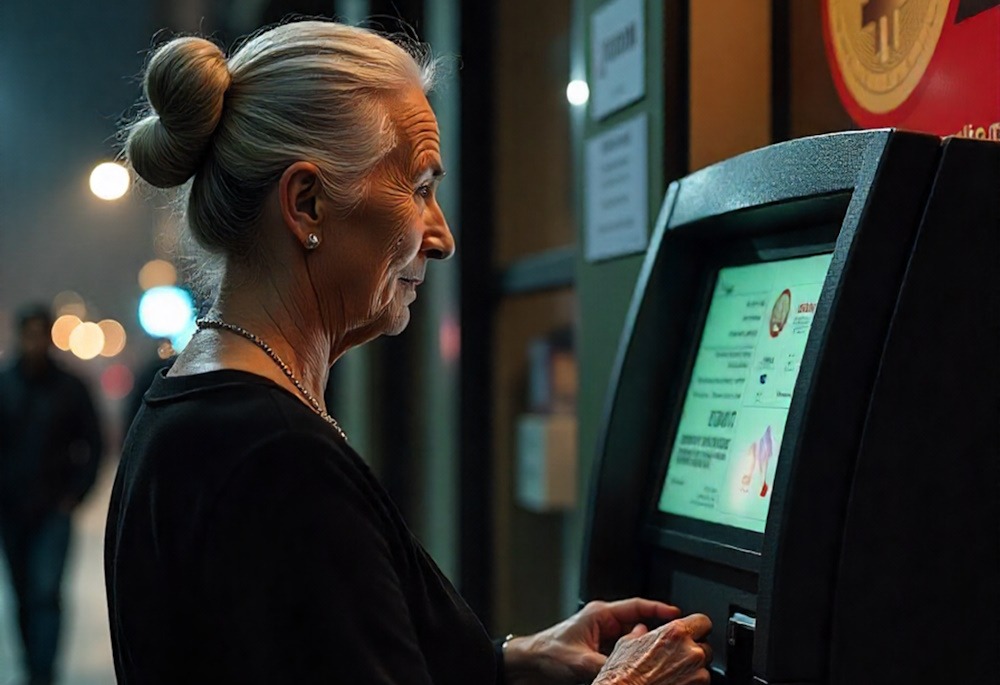It’s no secret that Argentina has been one of the leaders in the cryptocurrency world in the last few years. Rampant inflation has devalued the peso, and economic instability has caused many locals to move to Bitcoin (BTC) and other digital assets. However, it still comes as a surprise to see the following ways in which it’s gone mainstream.
Making Purchases
This BBC report on the rapid adoption of BTC and other tokens points out that a walking tour around Buenos Aires gives visitors the chance to understand how deeply ingrained Bitcoin has become in the local economy. It also mentions the town in Patagonia where up to 40% of the local stores accepted Bitcoin payments at one point. While paying in stores with cryptos isn’t yet widespread, doing so online is becoming ever more common.
If we look at an international site like the Bodog casino, we can see where the future is headed, with players in this online casino able to add funds using Bitcoin or a variety of other tokens such as Ethereum or Tether. While these currencies have largely been used in Argentina to avoid peso volatility, this use case shows how they work well in providing fast and secure transfers anywhere on the planet.
In this way, players get rapid access to gambling games such as slots, roulette, and blackjack. The benefits of crypto in this case are easy to see, since casinos rely on key factors such as security, speed, and privacy, all of which are provided by the top digital assets.
Sports fans can also bet on their favorite teams in this way, also via Bodog’s platform. This look at the best Canadian players to win the NBA Championship reveals one of the popular sports where bets can be made using cryptos. Again, many of the same advantages exist, allowing sports fans to access faster and safer payments, without having to compromise their privacy.
Paying Local Taxes
No one wants to pay taxes, but since we have to do it, the easier it is, the better. In this respect, the news that Buenos Aires residents will be able to pay their taxes and local authority services using cryptocurrencies is a huge step forward. Mayor Jorge Macri pointed out that this is part of the drive to make the Argentine capital “a world leader in crypto.”
This is widely seen as another sign that the local authorities are taking a friendlier view of the crypto market, as the digital economy starts to become an ever-bigger part of life here. Argentina was recently ranked as the third most attractive country for hiring online talent, behind only the US and the Philippines.
This shift toward online working means that many Argentines receive their salaries in digital form, with many using cryptocurrencies to receive their money seamlessly.
Using Bitcoin ATMs
Bitcoin ATMs have been springing up around the world for a few years now, although the majority of people still haven’t ever used them. Buenos Aires has around a dozen of these devices, according to the latest statistics on this map. As well as BTC, digital currencies like Monero, Dogecoin, and Tether can be operated in this way. However, once you leave the capital, you’ll find it a lot more difficult to locate a crypto ATM.
Spanish firm BitBase recently opened a store in Recoleta that’s designed to help residents understand how to get started with these tokens. This company already has stores and ATMs all over Spain and other countries, with their eyes on Argentina as the next location to enter.
Low Energy Costs May Make Mining Profitable
Earning Bitcoin by working online, taking it out from an ATM, or spending it online aren’t the only ways of dealing with cryptocurrencies. More Argentines have been taking an interest in mining tokens directly using their home computers, or even a mobile device. The first thing to understand about this activity is that mining Bitcoin is virtually impossible with a regular computer, since huge companies with enormous levels of hashing power have grabbed control of this token’s production.
Among the companies making a mark here, the Texas-based company Giga Energy has been using the excess energy from flared gas to mine Bitcoin economically. They’ve been working from the Vaca Muerta location in Mendoza since 2023, with estimates earlier this year that they’ve mined around $200,000 in tokens to date.
For home miners, the relatively low energy costs in Argentina make it an attractive option, but they need to find tokens that make it worthwhile. Bitcoin Gold, Verus, and Monero are among the popular choices. Interestingly, the country has also been tokenizing its lithium reserves on the Cardano blockchain, allowing the sale of fractions of the property reserves.
All of these different examples let us see how the blockchain is becoming a bigger part of life in Argentina in different ways. As more people decide to get involved, we can look forward to seeing cryptocurrencies crop up in many other parts of life.

